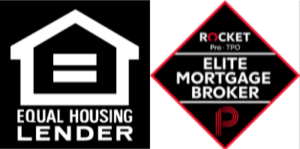FAQ
ask us
anything
What documentation is required to obtain a mortgage?
The documentation that is required to get a mortgage will vary from buyer to buyer. For the most part however, the documentation that is required to get a mortgage will be fairly similar.
When formally applying for a mortgage, there will be some initial documentation that will be required by the mortgage lender. Documentation such as a social security card, one months pay stubs, and the past two years w-2’s are all pretty commonly asked for by a mortgage lender. The documentation will be different for buyers who are self employed as well.
Other common documentation that is requested by a mortgage lender to obtain a mortgage includes;
- Drivers license
- Bank statements
- Asset statements
- Fully executed purchase contract
- Copy of an earnest money deposit check
What is the difference between a Pre-Qualification & a Pre-Approval?
One mistake that home buyers commonly make is not getting a pre-approval. Many home buyers believe that a pre-qualification is the same as a pre-approval. This is actually the furthest from the truth.
• A mortgage pre-qualification can easily be defined as an estimation of how much a buyer can borrow. In many cases a pre-qualification is only as good as the piece of paper that it’s written on. It’s fairly common practice that a mortgage lender who pre-qualifies a buyer asks them for information such as income, debts, and other assets without verifying the information. If a buyer is not truthful or makes a mistake when giving the information this can lead to problems in the future when the mortgage is verified by an underwriter.
• A mortgage pre-approval is what every home buyer should obtain prior to looking at homes. A mortgage pre-approval can be easily defined as a written commitment for a buyer from a mortgage lender. To obtain a mortgage pre-approval a buyer will be required to provide the same documents that are required when formally applying for a mortgage, such as w-2’s, pay stubs, and bank statements.
What are discount points
Some buyers hear the term mortgage points and wonder what exactly they are. Paying for mortgage points is a fairly common practice. Mortgage points generally come in two variations, discount points and origination points. One point will generally cost 1% of the total amount that is mortgaged.
One benefit to purchasing mortgage points is to “buy down” an interest rate. One point will generally reduce the interest rate by .25% which can save a significant amount of money for a borrower over a 30 year term.
Paying for mortgage points can be a great idea for some buyers and not such a great idea for others. Ultimately, it’s important
you understand what mortgage points are and also whether it would be beneficial to purchase points. Asking a top mortgage consultant whether you should purchase points or not is usually a good way to know if it would benefit you or not.

